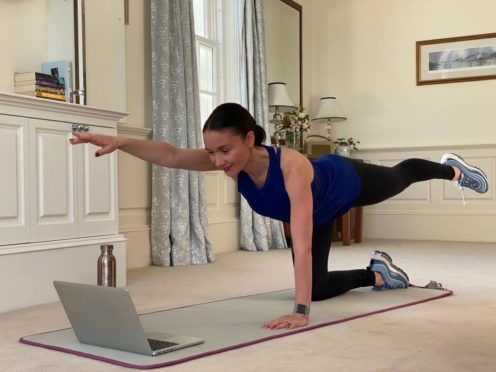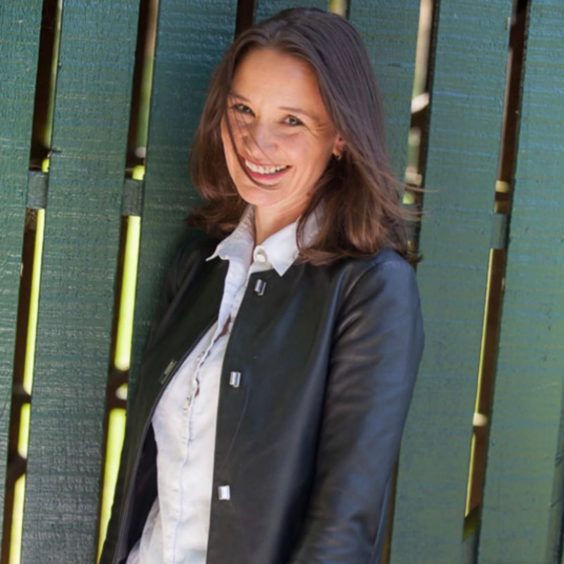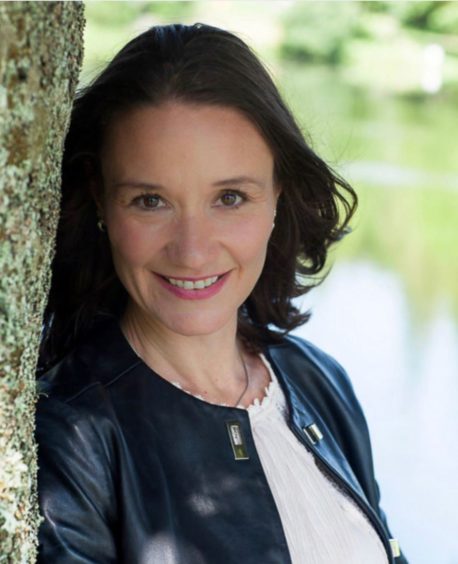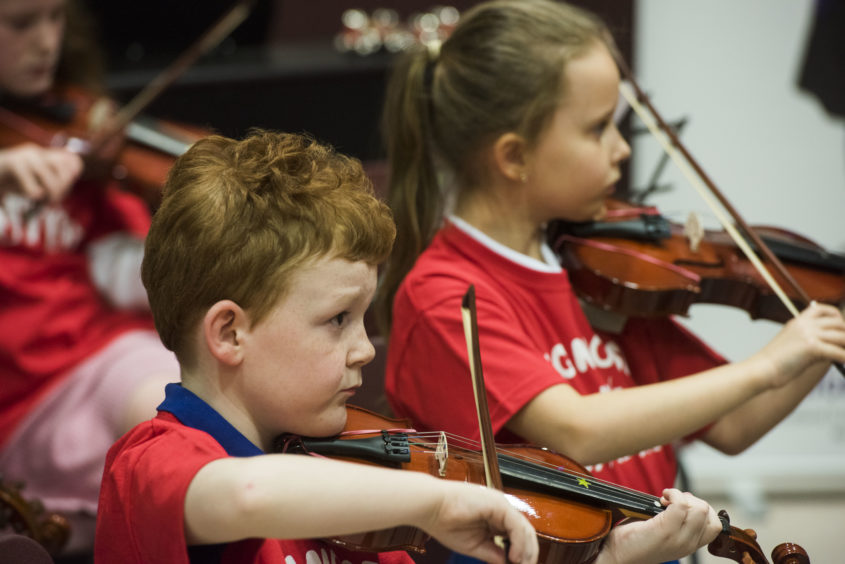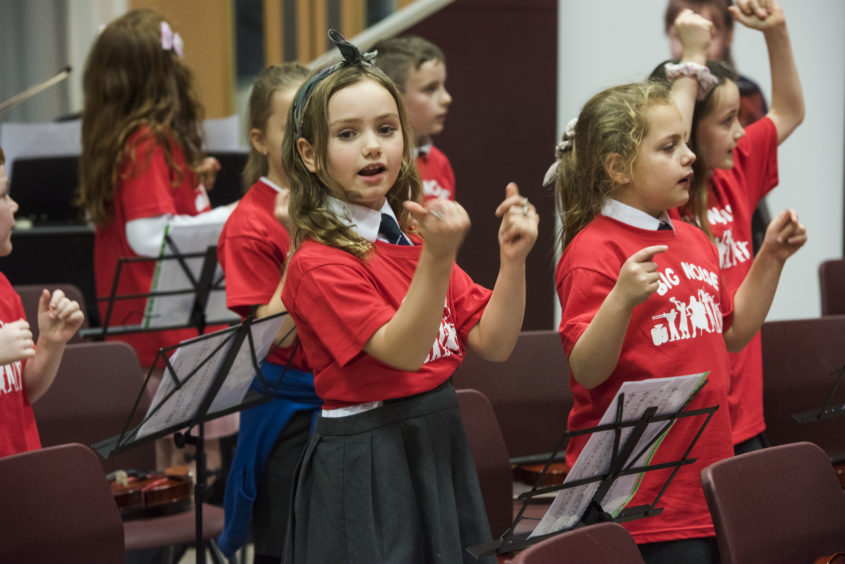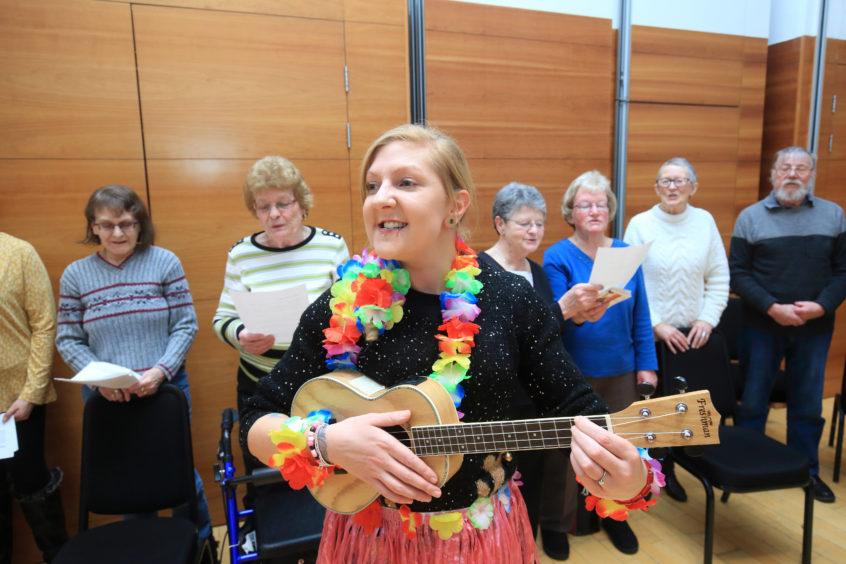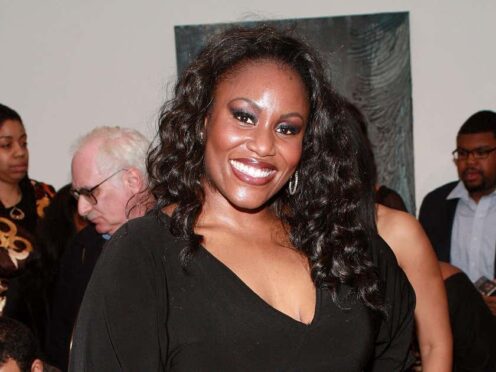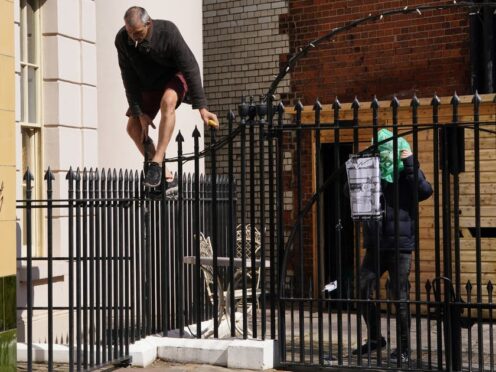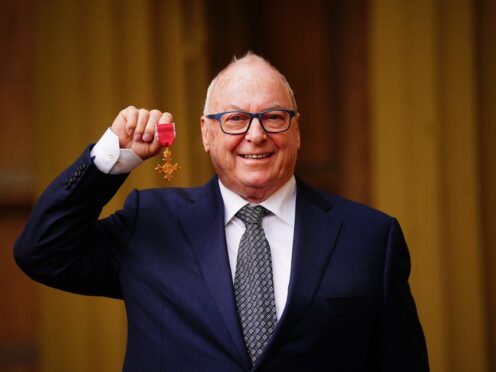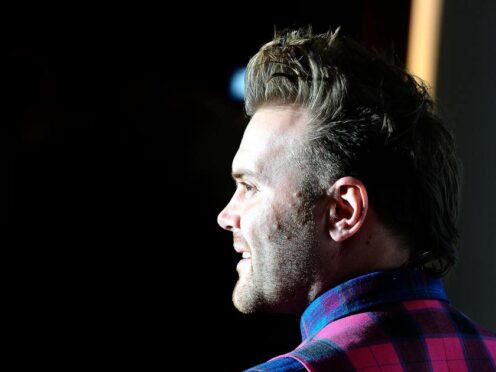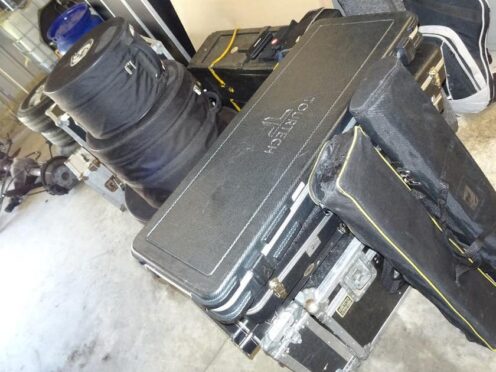As Greek philosopher Aristotle observed, man is by nature a social animal, so to have all our communal activities snatched away from us during lockdown was hard to bear.
Joining a choir or an orchestra is a popular activity for people young and old but although social distancing has made it impossible to get together in person, many groups are enjoying virtual experiences.
danceSing describes itself as the Dunblane-born choir that keeps you fit and, under normal circumstances, classes include singing sessions, choir, vocal training, dance fitness, pilates and live performances.
Singing and dancing are both beneficial to mental and physical wellbeing. Singing improves the mood and is a natural antidepressant, improves posture and boosts confidence to name just three benefits. Dancing increases aerobic fitness, muscular strength, endurance and motor fitness, while releasing endorphins to lift one’s mood.
danceSing founder Natalie Garry explains how lockdown has affected danceSing.
“danceSing saw a 68% increase in membership in January with our face to face classes and we were aiming to expand across the UK,” says Natalie, who lives in Dollar and taught in Dunblane.
“Sadly we can no longer teach face to face classes and the research suggests that singing and large group fitness sessions will be one of the last things to come back.
“Many of our members will be hesitant to put themselves in that environment until there is a vaccine.
“We had no choice but to adapt the company,” she continues.
The future of danceSing in the medium term will be through online danceSing On Demand.
“It allows you to participate at a time that suits you anytime, anywhere,” says Natalie.
Now running 52 weeks of the year, every other Saturday night danceSing members get to attend a virtual performance form some of Scotland’s top musicians and performers.
“This has been an amazing intimate experience, where we get to be inside the performer’s home and to share the experience with other members – they chat online as they enjoy the concert.
“It feels like The New Old Days!” she smiles.
“We are planning a drive through choir session at Loch Leven’s Larder at the end of the summer and some drive through singalongs.
“Two local companies are joining together and adapting to the pandemic, while always trying to give the public wonderful places and experiences to attend.
“We have adapted and we are excited.”
Natalie is proud of how danceSing participants have adapted during lockdown.
“An incredible 60% of our members have continued with us online with many more joining from across the UK and across the globe,” she says.
“During the first stage of lockdown and while we adapted, we ran free classes on Facebook and had 4,500 people joining us. That was our contribution to keeping people well and connected during Covid-19 – it was exciting and there was a real buzz.”
Choir Drive-Through Sing at Loch Leven’s Larder takes place on Saturday August 29. Singers can drive into the open space, wind down their windows, and sing from their cars to danceSing music teachers who will be leading the songs.
Membership from £20 a month. To find out more, please visit: www.dance-sing.uk
But it’s not just adults who are at risk of missing out on their music and movement. Big Noise Douglas in Dundee works with children at nursery and Primaries 1 and 2, gradually building on core skills such as listening, concentration, rhythm and teamwork whilst learning to play a classical instrument in a group.
Kirsty Yanik of Sistema Scotland explains: “Big Noise Douglas is the fourth and most-recently established Big Noise centre. The Big Noise programme and the four Big Noise centres are run by the charity Sistema Scotland.
“Sistema Scotland targets – and works with – communities in Scotland facing significant challenges and inequalities. Its aim is to support children and young people to realise their full potential, improve lives and strengthen communities through music and nurturing relationships.
“As children reach Primary 3 and beyond, Big Noise evolves into an intensive and immersive orchestral programme of after-school and holiday club music teaching, performance and social interaction.”
Sistema Scotland made the difficult decision to pause all face-to-face delivery of Big Noise in mid-March but realised that its first priority during lockdown was to establish digital lessons.
“As of mid-July, Big Noise Douglas had delivered over 500 live online lessons and created over 100 teaching videos for its participants,” says Kirsty.
“We’re undertaking a lot of work to plan how Big Noise will operate after the summer and beyond. This will be based on a range of factors, including Scottish Government guidance, the community-based settings that we work in and indeed feedback from our communities about their experiences of Big Noise at Home,” she explains.
“We very much want to return to face-to-face delivery – safely – as the experience of learning together, performing in an orchestra and making new friends really underpins what Big Noise is all about.
“However, we have also learned a lot about how we could use digital tools and resources to support our work in the longer term.
“It is likely that Big Noise in the future will include elements of both.”
Kirsty and the team have been really encouraged by how many children and families wanted to keep taking part in Big Noise, even when they could only do so digitally.
“Parents have said to us that having Big Noise online lessons has helped their children stay positive and focused. Online group lessons also helped the children to stay in touch (to a limited extent) with some of the friends that they could not see in person for much of the lockdown.
“However, the lockdown has really highlighted issues around digital inequality and it’s been a particularly difficult time for families who have limited or no internet access.”
Meanwhile, a local online singing group – Horsecross Arts’ Virtual Voices – has struck a chord by attracting participants from as far afield as the Netherlands and Canada.
The creative organisation and charity behind Perth Concert Hall and Perth Theatre launched the virtual version combining its popular Horsecross, Leven and Carse Voices groups in early June, and since then the group has built up a regular local and global following for its weekly sessions.
When the first block finished in July, almost 40 singers of all ages and stages were meeting up to belt out songs via Zoom in the informal hour-long choir meets. And now a second block of Virtual Voices is running until October 6.
Emma Neck, creative learning co-ordinator (music) for Horsecross Arts explains: “We’ve had such an amazing response from people all over Scotland joining Virtual Voices, and we even have some international participants.
“Setting up an online singing group seemed like a strange concept, as you are taking away the fundamental basis of what a choir is – singing together – we asked the participants to take a leap of faith with us, and we’ve been pleasantly surprised by the reaction and overwhelmed by the positive feedback,” she smiles.
“Nothing beats the power of singing in a group, but this new virtual platform offers lots of positive alternatives and still gives the sense of singing together, plus it’s great for anyone who lacks the confidence to join a traditional choir.
Ann Dandie of Kinnesswood has been a member of the Kinross community choir since it began.
“I always wanted to sing and I like music,” she says.
“I feel so good singing as part of a choir – you don’t have to be a good singer.
“I do miss the company because one of the benefits was meeting so many lovely people, but it’s so nice we can keep singing until we can all meet again.”
Virtual Voices runs from 7pm to 8pm on Tuesdays from 18 August until October 6. To book an individual session for £3.50 visit www.horsecross.co.uk
